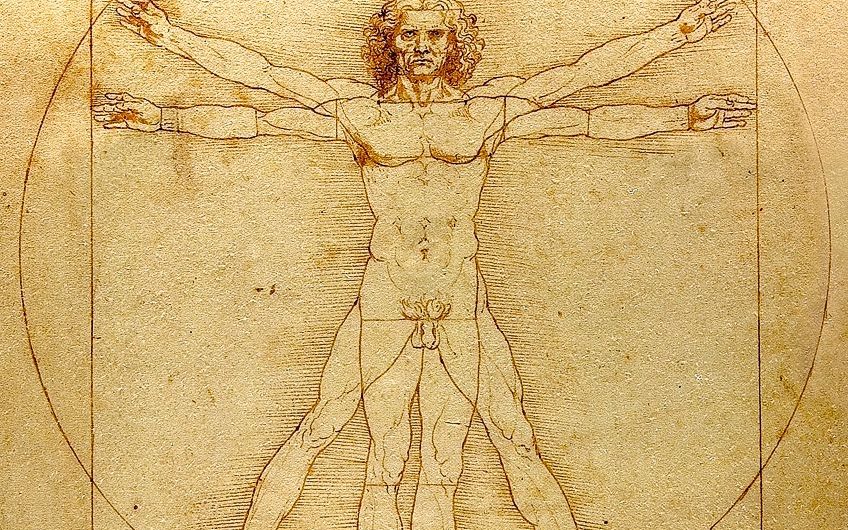“Fit for the task or purpose intended” it’s far more than physical.
In sports science and in sports performance based coaching it’s quite common, although not the only way, to break down preparation for performance into the following factors
Physical
Psychological
Technical
Tactical and
Lifestyle
In a number of previous articles I’ve dealt with some of the psychological issues,
Managing Stress
Keeping Focussed
Peer Pressure
Visualisation for learning and problem solving
Teamwork
And a few others. Let’s look at each of the other elements in turn.
Physical.
Excuse me while I leap up onto my soapbox! You see I am passionate about performance in sport and diving is no different. That’s what led me to write and teach an MSc in strength and conditioning, become an S&C coach for the British Olympic Association and S&C advisor in many pro sports.
Just about all the diving articles I’ve seen focus on aerobic conditioning, a bit of stretching and suggest you need to be strong enough to lift the gear. This is fine for an 18m open warm water diver. Fine, but not ideal. I’m going to layout what the demands are for a fully kitted tech diver and how best to condition for those. If you are any other sort of diver, think where your demands lie between the 18m diver and the tech diver. Adjust your training focus accordingly or ask me in the comments.
Demands are….
High thermal stresses including extremes in one dive
Heavy weight lifting in preparation and dekitting and cleanup.
Very heavy weight lifting in and out of the water
Endurance Capacity to swim for between 1 and 3 hours (yes I and others often go longer but up to 3 hours is typical)
Fast rate of recovery when stressed physically or mentally to bring breathing down.
Ability to hold a good trim position, i.e. strong dynamic core strength.
So, frankly long period steady state endurance training is not going to cut it.
Principles for training should therefore be
Get a doctors clearance, make a will, have a defibrillator on standby….. Seriously if you’ve any risk or concerns with exercising…
1, you shouldn’t be diving, 2, get professional clearance to start a programme including this.
Interval training, use non weight bearing if you wish to reduce joint stress (rowing / bike /. Cross trainer). Work on 20 seconds all out work to 40 seconds recovery at a good pace… Not resting or easy like some advisors might say. Do batches of 5, build up over a few weeks to 4 or 5 batches with a 3 minute lead in and 3 minute lead out. You should feel the lactate build in the legs getting more with each interval. Between each batch of 5 work at a steady but still good pace for 2 minutes only. You will find (if you work hard enough) that every orifice will try and draw in air! What’s important is that as you become accustomed your work pace gets faster, but critically, your recovery time decreases significantly. Three times a week if you’re serious.
Weights. Lift heavy- stop playing around with light weights and pretending it’s for endurance. Except in commercial gyms where they don’t want to be sued for injury, using weights for endurance in a sport is dead in the water. For example cyclists will lift heavy to build strength then for endurance, they’ll get on the bike. Do the same. Get training in good lifting technique and form. Be wary of who you get it from, I’m a huge critic of cross fit technical training for example. Just my opinion. Then lift 5 sets of 5 in these core exercises as heavy as you can manage and only just being able to complete the sets. The odd failure is good. Do them on a round for the 5×5, that is 5 reps of every exercise, one exercise after the other, then go back to first exercise and repeat. It’s not about fatigue, you’re not bodybuilding, you’re training strength. Back squat, bench press, chest fly, single arm row, single arm standing curl to overhead press, seated row, lat pull down or chin-ups. Do it three times a week, no more, no less. Try to move the weight quickly, if you can, lift a heavier weight! You should intend to move it quickly to maximise muscle fibre recruitment, but not be able to because the resistance is too great.
Core. Do planks in a press-up position working up to a least 2 minutes, overhead squats, farmers carrys and or suitcase carries, crunches and back extensions- get trained in good form, Physios are all over dynamic core development at the moment, it’s the latest trend. Ask them if they follow Stuart McGills principles, if so, good to go, if they don’t know who he is, run!
Stretch… Dynamic before exercise, static after. Don’t skip it, don’t spend hours on it either. Just check you are maintaining a good and normal range of movement.
Diet. Look, be clean, be good if you can, no processed foods at all, Inc low fat spreads etc, know what works for you, but this is not a weight loss programme. If you want a diet, see a sports dietitian, not a nutritionist, there’s a huge difference in those qualifications. It’s better to be fit and fat than thin and unfit.
Sleep. Massively underestimated… Quality 6-8 hours are needed by all, you cannot survive on less, even if you think you are used to it, you are just used to operating at a sub optimal level.
Psychological
Read my psychologist skills for diving page. Read a great book called ‘the mental gameplan’ by Bull, Albinson and Shambrook. Practice and train your mental skills. As much time on this as on physical preparation, it will stand to you for diving and for life.
Technical
This is where we focus on the dive skills, for me I break these up for my students and me into
Foundation Skills
Buoyancy – Trim – Propulsion – Planning
Basic Skills
Descents – Ascents – stops
Advanced Skills
Awareness – Communication – Teamwork
Kit Specific Skills
SMB – Lights – CCR etc
Emergency Skills
Shutdowns – Out of Air- lost diver- lost line – diver tows – unconscious diver management (I run a tech rescue course covering this and more)
Technical skills in elite and performance sport get the most attention. Typically over half a players preparation time will focus on these. The rest on tactical and physical prep, living a good lifestyle and mental skills. In diving, once we have finished the courses, many do not spend any time practicing these skills, to their great detriment if they ever needed them. Skill sessions should be planned into your preparation timetable.
Tactical Skills
What’s the relevance of this in diving you say? Well aside from the military definition, being tactical is ‘showing adroit planning, gaining an advantage beyond the immediate action’ (cheers Google!) dives should be planned tactically to achieve an end or mission as it’s often referred to. Knowing the objective and visualising the dive gives clear inside into the issues, risks and opportunities that the dive will bring. Proper preparation can then ensure that all team members are physically, technically and tactically prepared as well as psychologically prepared for the dive. Don’t just plan deco schedules and gas plans although these are critical. Build into runtime the activities you need to do to complete the mission, whiteboard or equivalent all the what if scenarios. Have a plan Bravo and plan Charlie.
Lifestyle
Lifestyle is straightforward. If you choose to devote yourself to becoming a safe and excellent diver, your lifestyle should support this. It’s all about appropriate choices, some like no alcohol before a dive and a 2 beer limit the night before are sensible and obvious, at least to some. I’m afraid I’ve little time for the macho beer drinking hungover diving prevalent in some places. Others such as diet choices to keep bodyfat down are more personal. In any event the lifestyle should support the diving and the training. Think about what in your lifestyle affects your fitness to dive. Travel, sleep disruptions, change in diet, stress from work issues. It’s all about managing those, and perhaps introducing a firebreak between them so you can close one area off and move unencumbered into the dive.
Now, are you sure you are fit to dive? Run through the above as a checklist and you can do a good self assessment. If you are not going to do full on tech dives, then choose an appropriate level of fitness, encompassing all of the above elements. Most of all
Have fun, dive safe.
Matt Jevon is a Technical and CCR instructor with TDI, IANTD and PADI and the JJ-CCR instructor and dealer for Ireland. He held accreditations as an interdisciplinary sports scientist, sports psychologist and was a British Olympic Registered Strength and Conditioning Coach.

[/et_pb_text][/et_pb_column][/et_pb_row][/et_pb_section]




